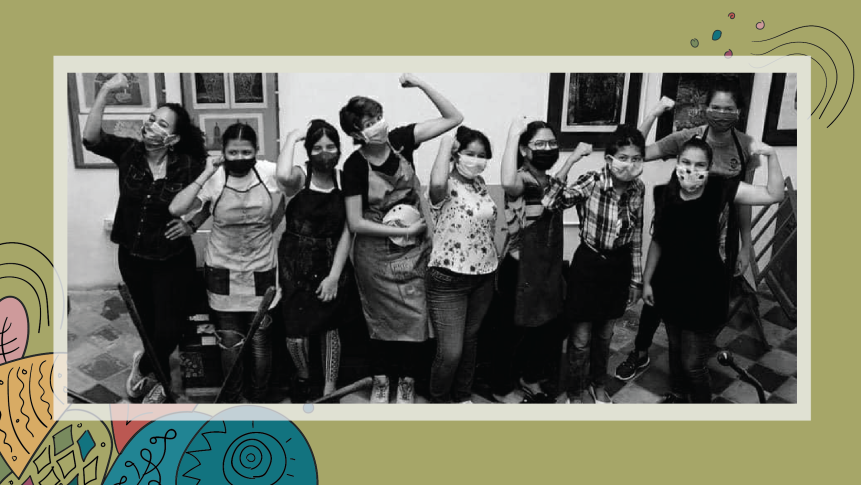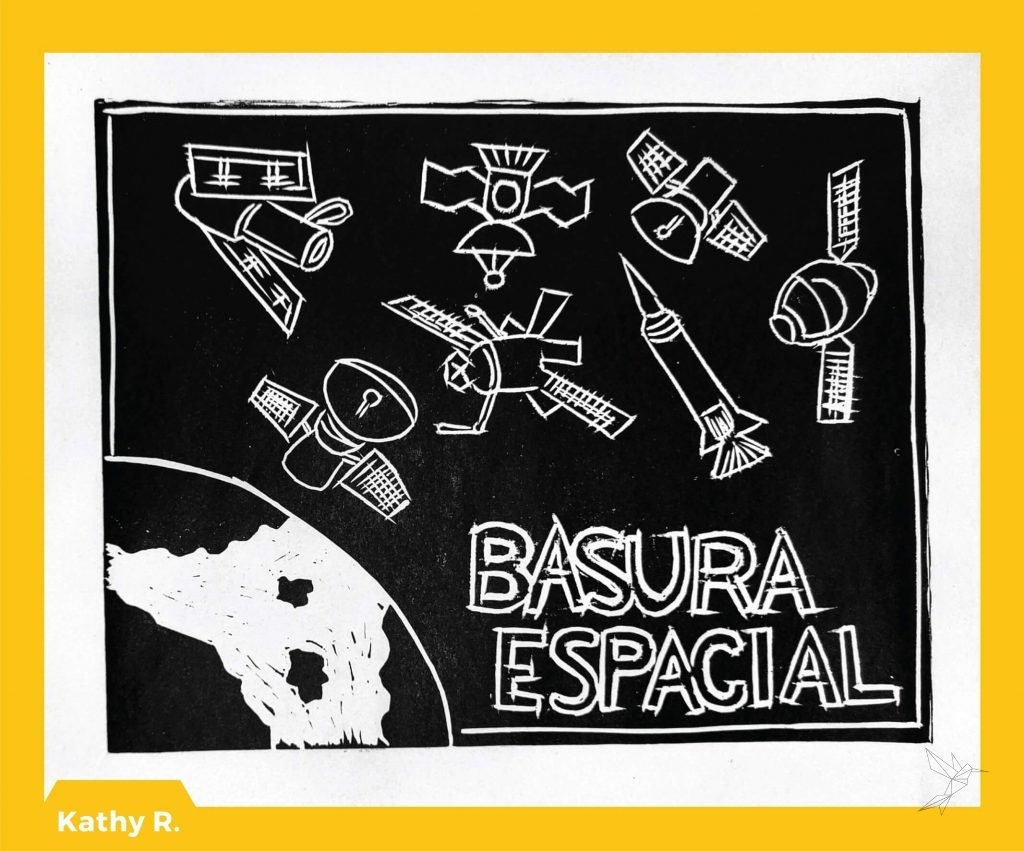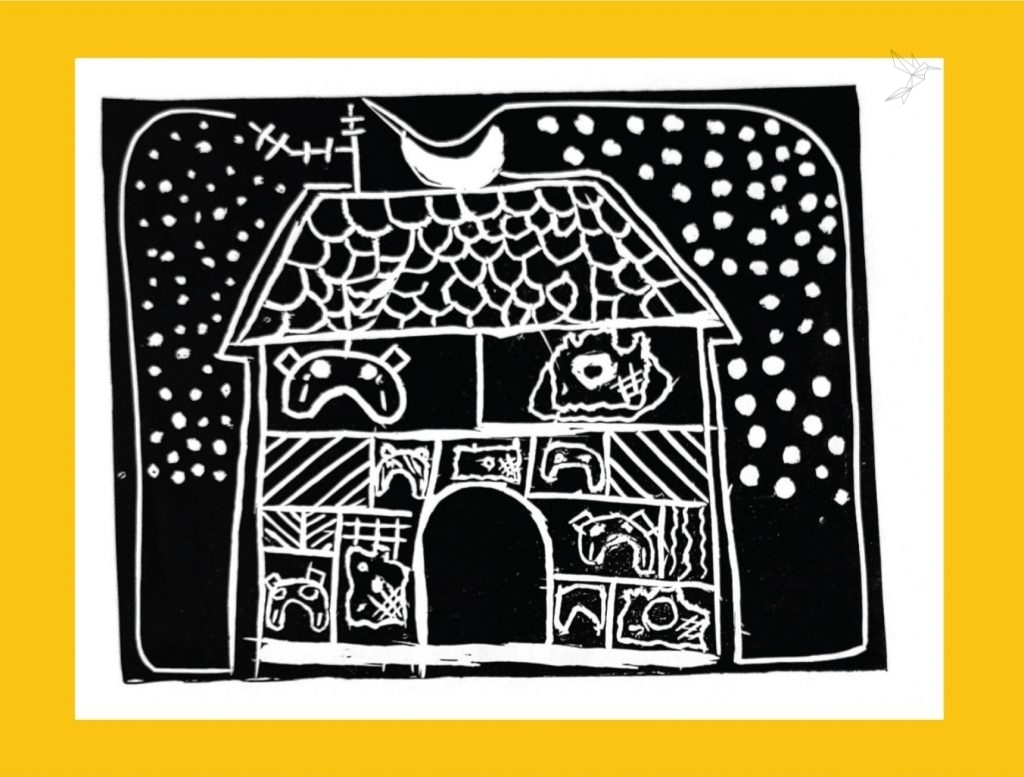
How are APC members improving their communities’ lives with the support of APC subgranting? In Central America, the intersection between digital transformation and environmental justice has been a priority for Sulá Batsú for many years.
You buy new models because their lives are over.
You buy devices designed for consumerism.
Sometimes you buy not because it’s expired, but because it’s the latest on the market.
You throw away tablets and cell phones not because their lives are over,
but because it’s what your friend bought.
You buy little pieces of nature.
This is the beginning of a poem entitled “Esto sucede” (“This is happening”), used by APC member Sulá Batsú to illustrate the powerful work of young women in rural areas of Central America. Author Ana Callejas, winner of Nicaragua’s national poetry contest, is a member of the Tonantzin Gráfica de Mujeres cooperative that Sulá Batsú works with to promote women’s participation in digital transformation, with an environmental perspective.

"Vacío", by Ana Callejas
This intersection, the one between digital transformation and environmental justice, has been a priority for Sulá Batsú for many years, as a cooperative founded in 2005 to encourage and strengthen local development through the use of digital technologies, art and culture, and a solidarity economy. Its awareness of environmental sustainability and the need to strengthen female leadership in this field goes hand in hand with APC’s strategic priority areas and has reached a new level through Sulá Batsú's latest project, “No digital transformation without environmental responsibility".
Promoting environmental sustainability and women’s leadership
To integrate an environmental responsibility strategy for the digital industry within Costa Rica’s National Telecommunication Development Plan is the main goal of the project, which addresses the country’s plan between 2022-2027 and has the support of an APC grant.
“We’ve positioned environmental sustainability as a key issue with public and private institutions, academia, civil society organisations and more, reaching over 1,200 people, with a percentage of 69% women and 31% men," Kemly Camacho, co-founder of Sulá Batsú, said in conversation with APC. They managed to include a specific chapter in the plan that addresses mitigation, adaptation and prevention of the environmental impact of digital technologies in the country.
Through the process, they developed research and generated data to help understand the environmental impact of the digital industry in Costa Rica. They also developed a national training process on the environmental impact of digital technologies and a fund for digital circular economy initiatives. “In Costa Rica it is mandatory to build public policies and strategies in a participatory manner and with a multistakeholder approach. However, the process is not binding, so we still do not know which of our proposals will be established in the final plan,” Camacho stressed.

Creating digital business models that are not predatory
While influencing the plan, they have continued to build on their efforts from previous years on creating different digital business models “that are not predatory and extractivist,” in Camacho’s words. In these businesses, mostly in the form of platform cooperatives, women are active leaders. Sulá Batsú supported 12 entrepreneurial initiatives by Central American women, by offering workshops on electronic waste, energy consumption of digital technologies, extractivism of minerals for digital technologies and environmental responsibility actions of the digital sector, and had ongoing conversations via email and direct contact to raise awareness of women’s role in the environmental impact of digital technologies, “so that they can be active in addressing these threats and challenges.”
Of the 12 entrepreneurial initiatives, three are still active today. One of them is “Cooperativa de mujeres en transición” (Costa Rica), where women over the age of 60 gather to explore ways to sell their products and services, which include dairy products and other agroecological products produced in a sustainable way, through a collective platform. Another one is La Colmena (Costa Rica), made of 30 young women from rural areas throughout the country who repair and reuse electronic devices, especially computers donated by transnational companies, which they then sell at affordable prices to families with low incomes. The third is Tonantzin Gráfica de Mujeres (Nicaragua), where 25 young women from rural areas and with very low incomes sell their own art pieces.

"With Tonatzin, we work hand in hand in creating digital art as a form of expression of these women's experiences and concerns. We create artistic collections to raise awareness about the environmental impact of technologies that are exhibited in Sulá Batsú's cultural centre to raise awareness among decision makers, social organisations, environmental organisations on this issue," Camacho says. “We are convinced that artistic expressions should be used to raise awareness and influence digital issues that are sometimes far away from the populations even though they affect them directly.”
All this work builds on Sulá Batsú’s efforts from previous years, mostly the TIC-as Network, a permanent programme that was born in 2013 through the UN Fund for Gender Equality and that focuses on Central America, Mexico and the Caribbean. Another example is “Las voces de las chicas de Centroamérica”, an initiative that aims to help women in rural areas to find job opportunities in the ICT sector.
They also recently launched platform “Okama Suei” (which means “internet” in the Cabécar language) is another example of the organisation’s work promoting women’s voices and agency. This platform, created in alliance with APC, CPIC, UNESCO, the FRIDA programme and the Embassy of Canada in Costa Rica, Nicaragua and Honduras, is designed and built on the knowledge of Indigenous women of Costa Rica.
“There is a space of opportunity to integrate the vision of women in the construction of the technologies that sustain the digital society,” the organisation stressed through their research published in the 2020 edition of Global Information Society Watch, also within the framework of the “No digital transformation without environmental responsibility” project.
Disinformation affects women working on environmental sustainablity
This year the UN theme for International Women’s Day revolves around women’s contributions to environmental sustainability. APC is particularly concerned about how silencing of free speech and disinformation are affecting women's work and voices, including environmental activists, so we asked Sulá Batsú how this has impacted their work.
“In Costa Rica, there is the belief that the digital industry does not have an environmental impact because electrical consumption comes 100% from renewable energies. This is an example of disinformation, as it hides the real environmental impact of big corporations like Microsoft, Intel, HP, Accenture, IBM in the country, and makes our work more difficult to justify,” Camacho says.
"We also often hear that this area of work does not have or need gender perspective," she added. "To counter this, we’re working with women who focus on environmental sustainability and digital threats. The level of attacks they receive, the way they are constantly undermined negatively impacts their and our struggle. We try to counter this through capacity building on more secure uses of technologies, increasing their awareness on the role of digital technologies in the hands of transnational companies and learning how to counter it.”
This piece is a version of the information provided by Sulá Batsú as part of the project “No digital transformation without environmental responsibility", adapted for the Seeding Change column. This column presents the experiences of APC members and partners who were recipients of funding through its core subgranting programme, supported by Sida, and of subgrants offered through other APC projects.
Did this story inspire you to plant seeds of change in your community? Share your story with us at communications@apc.org